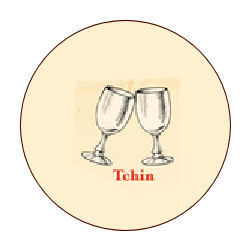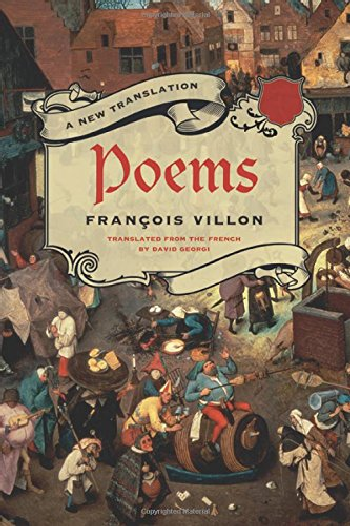|
François Villon: Poems
Newly Translated & Explained by David Georgi
 See the Book at Amazon.com See the Book at Amazon.com

About the Book
One of the most original and influential European poets of the Middle Ages, François Villon took his inspiration from the streets, taverns, and jails of Paris.
Villon was a subversive voice speaking from the margins of society. He wrote about love and sex, money trouble, 'the thieving rich,' and the consolations of good food and wine.
His work is striking in its directness, wit, and gritty urban realism. Villonís writing spurred the development of the psychologically complex first-person voice in lyric poetry.
He has influenced generations of avant-garde poets and artists. Arthur Rimbaud and Paul Verlaine have emulated Villonís poetry. Claude Debussy set it to music, and Bertolt Brecht adapted it for the stage.
Ezra Pound championed Villonís poetry and became largely responsible for its impact on modern verse.
With David Georgiís ingenious translation, English-speaking audiences finally have a text that captures the riotous energy and wordplay of the original.
With a newly revised French text that reflects the latest scholarship, this bilingual edition also features inviting and informative notes that illuminate the nuances of Villonís poems and the world of medieval Paris.
About the Author
François Villon (born circa 1430) is widely recognized as one of Franceís greatest lyric poets. A graduate of the Sorbonne and a chronic lawbreaker, he was pardoned for knifing a priest, jailed for stealing from a college chapel, and eventually sentenced to hang. He successfully appealed the sentence and was instead banished from Paris in 1463. He was never heard from again.
About the Translator
David Georgi studied medieval literature and modern poetry at Yale University and New York University. He works at Vanity Fair magazine and lives in New York City.

|


Jean-Thomas Cullen Added Notes
Profound Influence: Must-Read. Even the publisher's enthusiastic blurb can't do full justice to the impact of this young poet who was born around 1430/1 and disappeared from view forever in 1463 about age 33. His legacy is such that he influenced most, if not all, poets with his style and subject matter. He flourished at a pivotal time in European history. He could be considered the first major (modern) French poet, or the last of the European Medieval/Renaissance poets. His material is as vibrant today as it was in his lifetime. In some ways, think of him as one of the early Beat poets (only he had the Beats beat by about 500 years).
Wikipedia Article. François Villon.
|

